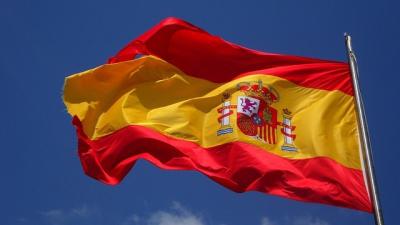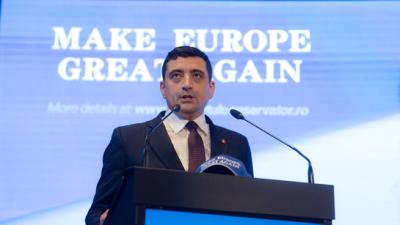“In the interest of Spain, I defend today the amnesty in Catalonia for the events that have taken place”. Amid the applause of the PSOE leaders and “for Spain”, Pedro Sánchez finally publicly defended amnesty for Catalan separatists. It was an open secret that, to make matters worse, was voted for by a majority in a consultation of the socialist rank and file. The truth is that there is no price that Pedro Sánchez and the Socialist Party are not willing to pay in order to come to power.
Thus, after a media campaign to prepare the ground and justify the amnesty, with arguments ranging from “for the sake of coexistence” to “we must prevent the right and the extreme right from governing”, the socialists had no qualms about meeting with the fugitive Puigdemont in Brussels, in the European Parliament. As they have done on other occasions, the separatists used the meeting to humiliate the government of Spain, and the room in which the number three of the Socialist Party, Santos Cerdán, and the president of the PSOE group in the European Parliament, Iratxe García-Pérez, listened to Puigdemont’s demands, displayed a large photograph showing a group of young people holding up a ballot box in the illegal referendum of 1 October 2017. The photograph, entitled “Contribution of Catalonia to the social and political progress of the EU”, appeared cut out of the images released by the PSOE, but this new humiliation, yet another one, has finally come to light.
The agreed amnesty not only affects Puigdemont and the rest of the fugitives, but also includes the 4,000 people indicted for the organisation and holding of the illegal referendum of 2017, and for the violent acts committed during the attempted coup d’état. The Catalan separatists also obtain the complete transfer to the Catalan government of the Cercanías network (regional trains), including the structures, and the cancellation of 15 billion in debt. In addition, and in exchange for postponing the independence referendum, Pedro Sánchez is willing to recognise Catalonia as a “nation”, since the Constitution currently recognises a nation, the Spanish nation, and nationalities. This seemed to be enough, but it never is. The agreement has not yet been reached, and Puigdemont’s new requests aim to extend the amnesty to those convicted of corruption offences such as his friend Laura Borras, sentenced to four and a half years in prison for prevarication and false documentation. The fugitive knows that he has Pedro Sánchez in his hands.
The other party of the Catalan separatists, ERC, has already indicated that they will have to review the changes agreed with Puigdemont and, of course, ask for more. But then there are also the Basque separatists of the PNV and Bildu, the political heirs of the Marxist-Leninist terrorist group ETA. At the moment the PNV has already asked for the same treatment as a nation for the Basque Country, and it remains to be seen what consequences this new concession to those who want to break up Spain will have. The Galician separatists of the BNG (Bloque Nacionalista Galego) have managed to get Galicia to be compensated for the debt forgiveness as Catalonia. The message is clear: Spain rewards the disloyal.
What are the separatists giving in on? Only one thing, the referendum is not on the table at the moment. However, given that the Socialists have removed the crimes of sedition and embezzlement from the penal code, the separatists have time to repeat the attempt, and with a much better chance of success. In any case, if Sánchez remains in government for much longer, there may be no Spain left to secede from.
What is the price of amnesty?
The amnesty is not only an unprecedented act in which a politician, in order to stay in power, pardons another politician for crimes as serious as having carried out an attempted coup d’état and breaking up the nation, it is also a torpedo to the waterline of democracy itself. The legislature overrides the judiciary and at the stroke of a pen it is destroying the equality of Spaniards before the law, an equality already badly damaged by the laws on gender and discrimination against the Spanish language in many regions of Spain. Spanish citizens are obliged to obey the law, separatists are not, as long as their votes are needed to put Sánchez and his gang in power. You can hardly call that separation of powers, let alone democracy.
Part of the Spanish judiciary, highly politicised by the PSOE and the PP, has reacted to the outrage. On Monday, the General Council of the Judiciary (CGPJ) approved an institutional declaration against the amnesty, calling it a measure with the effect of “abolishing the rule of law in Spain” and generating “a political class that is legally irresponsible and unpunished for its crimes”. For the CGPJ, this is “a serious violation of fundamental rights and of the very system of division of powers on which our Constitution is based”. The CGPJ states that it cannot “remain silent” in the face of this situation because of the serious consequences it has for the judiciary. Nevertheless, and however forceful it may be, this institutional declaration is not going to keep Pedro Sánchez awake at night. What could complicate his idyll with the fugitive Puigdemont is the indictment of Puigdemont and Marta Rovira, secretary general of ERC, for terrorism in the Tsunami Democràtic case.
Tsunami Democràtic appeared “spontaneously” and made its presentation on social networks in September 2019 to respond to the upcoming sentence of the procés (the secession attempt). Calling for civil disobedience and non-violence, its members caused all kinds of disturbances: they occupied offices of banks that “financed the represión”; they tried to storm the international zone of El Prat airport causing the cancellation of more than 100 flights; they blocked highways and caused public disturbances and destruction. For Manuel García Castellón, judge of the Audiencia Nacional (National Court), Puigdemont had “a leadership role” in this movement, and places him in meetings where his actions may have been planned. Regarding Marta Rovira, a report by the Guardia Civil concludes that she “carried out coordination tasks” of the movement. The judge considers that this is a crime of terrorism and has given Puigdemont the opportunity to testify voluntarily, otherwise, he will send the request to the European Parliament, since the fugitive is an MEP, so that it can pronounce itself on the matter. Even if the amnesty also absolves Puigdemont of these facts, the case opens the way for the amnesty law to be challenged by the European courts.
The street
The Popular Party has spoken out clearly against the amnesty, but its leaders were initially reluctant to support street demonstrations, which is why they did not attend the large demonstration, attended by between 100,000 and 200,000 people, held in Madrid on 29 October. Fortunately, the PP has changed its attitude and has already called for rallies next Sunday, 12 November, in all the provincial capitals of Spain. For Alberto Núñez Feijóo, the amnesty is an “attack on the rule of law” and “the biggest democratic step backwards in our history”. Feijóo also announced his attendance at the next big demonstration in Madrid, in the Plaza de Cibeles. A few hours earlier, Santiago Abascal confirmed his presence and support for the demonstration. VOX, unlike the PP, has permanently shown its opposition on all fronts, both in the streets, attending and supporting all the demonstrations called against the amnesty, and in the courts, announcing a future lawsuit for bribery against Pedro Sánchez for “selling the amnesty in exchange for votes”, and against the lawyers of Congress and the Senate who admit the processing of the amnesty. For Santiago Abascal, the amnesty is a “betrayal” of all Spaniards by a PSOE whose leaders have “no morals”.
But, in addition to these calls, there has been a spontaneous phenomenon reminiscent of the appearance of national flags all over Spain during 2017, in the midst of the separatist coup d’état. Last Friday, a protest rally against the amnesty took place in front of the PSOE headquarters in Madrid, in Calle Ferraz. Since that day, demonstrations in front of PSOE headquarters have spread throughout Spain. On Monday, hundreds of people gathered in Barcelona, Cordoba, Jaen, Malaga, Oviedo, Seville, Toledo, Valencia and Zaragoza. The largest was in Madrid, attended by thousands of people and the main leaders of VOX. It is clear that these demonstrations have worried the socialists, Pedro Sánchez has described them as an “attack on democracy”, and the riot police were ordered to charge the demonstrators and use tear gas, a material that was not used against the violent separatists in protests that ended with numerous injured policemen. The riot police charge has even been criticised by several police unions who have called for the resignation of the government delegate, Francisco Martín, who was responsible for the police action. A government delegate who has even stated that Bildu has “done more for Spain and the Spaniards than people wearing patriotic wristbands” (a reference to right-wing supporters). The police charge has caused enormous indignation and the social networks have been filled with messages in favour of maintaining the rallies in front of the socialist headquarters. If the government’s intention was to discourage the protesters, they have achieved exactly the opposite.
The amnesty represents a radical change in the rules of the game and is provoking reactions. Judges, right-wing parties and even prominent members of the Church, which is used to not raising its voice, have spoken out against it. The Bishop of Orihuela-Alicante, José Ignacio Munilla, called the amnesty “profoundly immoral”, and last week the Archbishop of Oviedo, Jesús Sanz, accused the PSOE of being “accomplices who sell what belongs to others for a plate of lentils to stay in power”. But all this is not enough to change reality. Pedro Sánchez is going to try to close the deal as soon as possible and begin the investiture, if possible this week. We will see if the reaction also extends to other state bodies and if it is enough to prevent what is narrated in Quo Vadis, the wonderful novel by Henryk Sienkiewicz, from happening and Nero from being able to burn Rome.
Read also
The Goloshchokin genocide, the unknown Kazakh Holodomor
The Second Congress of Victims of Communism took place in Madrid, organised by the Institute of Historical Studies (CEU) and the Centre for Studies, Training and Social Analysis (CEU-CEFAS).
Álvaro Peñas
Rubén Herrero de Castro: “Russia wanted to behave like a superpower, but it is not”.
Interview with Rubén Herrero de Castro, PhD in Political Science and Sociology from the Complutense University of Madrid and Professor of International Relations at the Faculty of Political Science at the same university. He is a researcher at the Franklin Institute of the University of Alcalá de Henares and the Research Unit on Security and International Cooperation. Author of several books, including The Invented Reality.
Álvaro Peñas
Corruption in Portugal: The never-ending story
Portugal’s political news is not free from the spectre of corruption. Of course, there have been other important news items, such as the adoption of euthanasia, mentioned at the end of this article, but the succession of corruption-related news items occupies the front page of all the newspapers.
Álvaro Peñas
Make Europe Great Again. The international conservative conference in Romania and the return to normality
The last weekend of April we were in Bucharest to attend the MEGA - Make Europe Great Again event held in the Romanian parliament.














Comments (0)